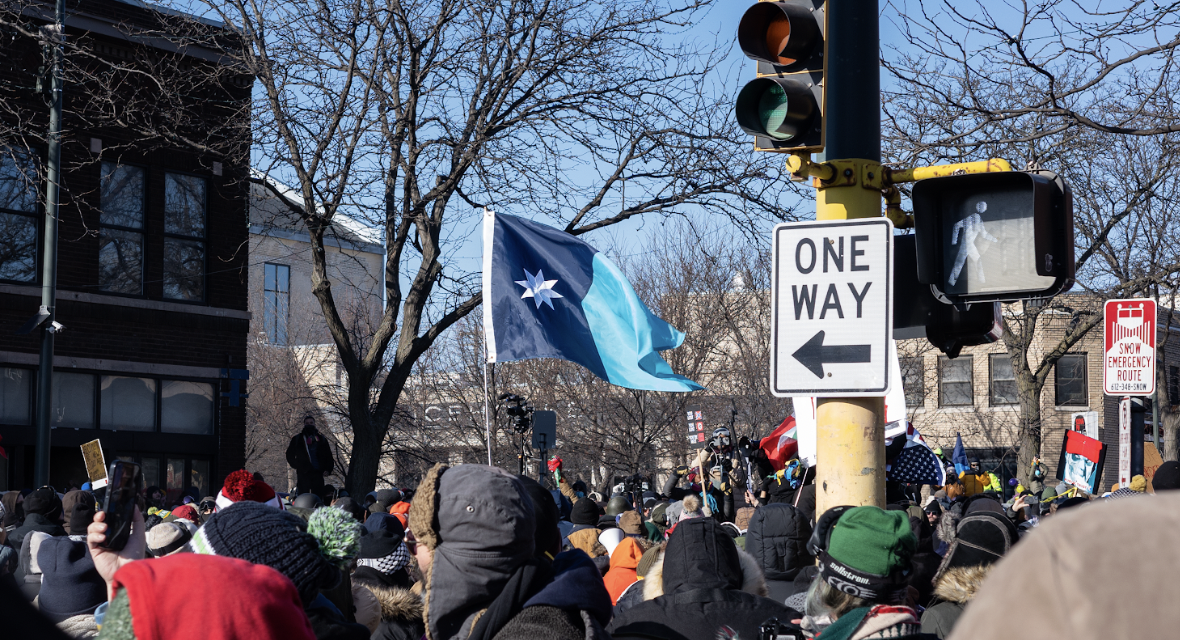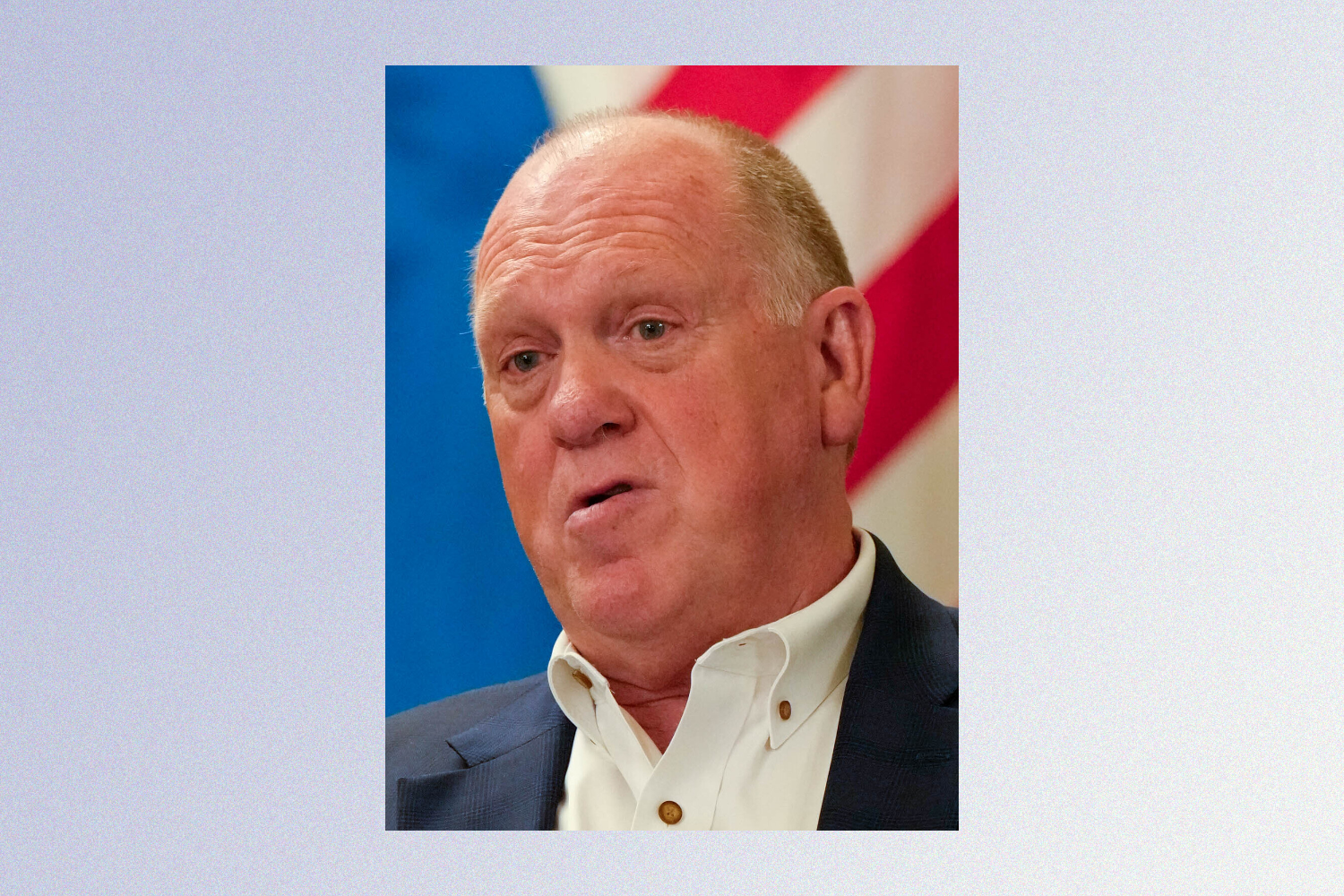Welcome back to The Flyover, your daily digest of what local media outlets and Twitter-ers are gabbing about.
Un-Rocking News for Young Local Bands
The Treasury, an all-ages, 180-capacity music venue located on St. Paul's East Side, struggled to get off the ground. “I kid you not: We finished construction on March 13th of 2020, which was the day [Gov. Tim] Walz enacted the first stay-at-home orders," Jack Kolb-Williams, the former executive director of nonprofit Catalyst Music, told Racket. "There was a lot that hit us all at once." Eventually, in April 2021, The Treasury opened its door to a genre-spanning mix of upstart local bands, though the fun will stop after October 31. "Catalyst Music has enjoyed hosting bands and music fans in this venue," reads a press release from this morning, "but have encountered issues that make this an unsustainable space for the venue in the long run."
The remaining shows on the venue's calendar will go on as scheduled; Catalyst will continue to run The Garage, the all-ages Burnsville club it has operated since 2015. Catalyst spent around $60,000 to reimagine the Old Swedish Bank Building at 965 Payne Ave. as The Treasury, Kolb-Williams told us, and the space enjoyed a busy summer, including co-hosting duties for June's Payne Avenue Fest. It's unclear what issues are forcing the music hall's closure, but this much is certain: It's bummer news for Twin Cities kids hoping to score their first stage time in a welcoming, alcohol-free environment.
America’s Healthcare System is a Racket (and Not a Good One Like Us)
In recent years, Mayo Clinic says it has seen a 132% increase in patient/doctor texting, sometimes going so far as to eliminate the need to book an appointment altogether. That’s what business people call "leaving money on the table," so this week the hospital announced it’s going to start billing people up to $50 for messages of a diagnostic nature, though it assures us we won’t see fees for things like appointment confirmations or prescription refills.
The idea is to curb excessive texting, but, as Jeremy Olson at the Star Tribune points out, when the University of California-San Francisco switched to a similar plan they only saw a slight decrease in messaging and no increase for in-person or virtual appointments. Meanwhile, medical professionals say they are drowning in messages from patients, using their lunch and after hours to respond. Too bad the Mayo Clinic isn’t using its $18 billion revenue to better pay its workers or give its nurses PTO and more control over staffing levels.
Speaking of rackets that aren’t us, patients aren’t the only ones getting slammed with fees. This maddening ProPublica piece explores how insurance companies force doctors to pay them before getting reimbursed. Minnetonka-based UnitedHealth Group is one of the worst offenders, raking in billions each year by charging up to 5% each time a medical office gets paid.
Bloc Party
Earlier today, a group calling itself Minneapolis for the Many announced a campaign to elect a progressive City Council majority and support candidates who, among other things, pledge to humanely address homelessness and public safety issues.
“Minneapolis is ready to move on from Jacob Frey’s City Council majority and elect progressive leaders who won’t hide from their constituents or run from our most pressing issues," writes spokesperson Chelsea McFarren in a statement. "We’re going to speak directly to the voters about a Minneapolis where everyone feels safe in every neighborhood, where we can all rely on the city to efficiently and equitably provide public goods and services, and where all of us have affordable, secure housing.” The candidates supported by MFTM are: Jeremiah Ellison (Ward 5), Soren Stevenson (Ward 8), Aurin Chowdhury (Ward 12), Katie Cashman (Ward 7), and Aisha Chughtai (Ward 10). (This is an independent endeavor not coordinated with or approved by any City Council candidate.)
Over in St. Paul, the Star Tribune's Katie Galioto has the story on the campaign bloc aiming to become the first all-women City Council. The seven candidates—newcomers Hwa Jeong Kim (Ward 5), Anika Bowie (Ward 1), Saura Jost (Ward 3), and Cheniqua Johnson (Ward 7), along with incumbents Mitra Jalali (Ward 4), Rebecca Noecker (Ward 2), and Nelsie Yang (Ward 6)—would, if elected, make up the youngest St. Paul City Council ever. They'd also be its most diverse. "I do feel like this potential future council that I'm currently campaigning with could be the most ideologically aligned, representative, unified, progressive council that our city has ever had," Jalali told the Strib.
God Rules Local Radio
That's according to this profile of KTIS (98.5 FM) from Adam Platt at Twin Cities Business. Owned by Roseville's University of Northwestern (the godly one, not the Big Ten one), the contemporary Christian music station has been crushing it in the ratings for the past few months; per Nielsen numbers, its 11.6% market share among listeners ages 6+ is greater than MyTalk 107, Cities 97, and WCCO Radio—combined. Launched in 1949, KTIS works as a noncommercial, nonprofit broadcaster by hosting pledge drives and regularly soliciting donations, writes TC Biz, and its message of “hope, encouragement, and faith" doesn't bleed into fire 'n' brimstone territory.
Musically, it plays some crossover household-ish names (Lauren Daigle, Switchfoot, Amy Grant), but the playlist will be mostly familiar to devout praise music fans. “We wanted to be part of making Christian radio more fun,” station manager Dave St. John says of his 15-employee operation that includes Minnesota Broadcasters Hall of Famer Pam Lundell. "The goal is to play the music that reaches as many people as possible." Adds Dan Seeman, a suit with competitor Hubbard Radio Minnesota: “It’s very well done, it’s good radio, produced quite well.” For the whole David vs. Goliath story, check out Platt's piece.







